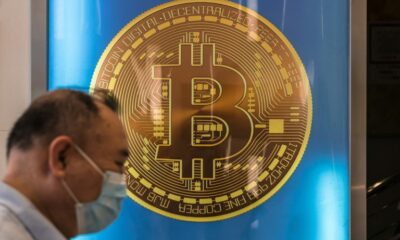Australian computer scientist Craig Wright is not “Satoshi Nakamoto”, the pseudonym used by the creator of the cryptocurrency bitcoin when it launched in 2008, a UK court ruled Thursday.
The decision follows a trial in London’s High Court after the Crypto Open Patent Alliance (COPA), a nonprofit organisation set up to keep cryptocurrency technology free from patents, sued Wright.
Wright, 53, has claimed since 2016 that he was Satoshi Nakamoto and the author of a white paper that unveiled what would grow to be the world’s most popular cryptocurrency — and which Thursday reached a record high.
But in his ruling handed down Thursday, judge James Mellor dismissed Wright’s claims, calling the evidence for his decisions “overwhelming”.
“Dr Wright is not the author of the bitcoin white paper,” Mellor said.
“Dr Wright is not the person who adopted or operated under the pseudonym Satoshi Nakamoto in the period 2008 to 2011.”
The judge added: “Dr Wright is not the person who created the bitcoin system… he is not the author of the initial versions of the bitcoin software.”
Wright, an enigmatic programmer who has described himself as “creator of bitcoin” on social media platform X, had initiated a number of lawsuits over the issue but faced legal action brought by COPA on this occasion.
The organisation brings together heavyweights in the industry, including the cryptocurrency platform Coinbase and Block, which specialises in digital payments.
Wright had yet to react publicly to the ruling.
– ‘Win for truth’ –
“This decision is a win for developers, for the entire open-source community, and for the truth,” a COPA spokesperson said in a statement.
“For over eight years, Dr Wright and his financial backers have lied about his identity as Satoshi Nakamoto and used that lie to bully and intimidate developers in the bitcoin community.
“That ends today with the court’s ruling that Craig Wright is not Satoshi Nakamoto,” it added.
The ruling could impact another lawsuit pitting Wright against 26 developers — including Coinbase — for allegedly infringing upon his intellectual property rights.
Earlier in the day, bitcoin struck a new record high at $73,797.
It later traded at $70,646, highlighting the volatile nature of cryptocurrency that has triggered warnings from regulators and central banks aimed at small investors.
Bitcoin has soared this year on several factors, notably being made more accessible for trading.
The launch of a new investment vehicle — bitcoin-indexed exchange traded funds (ETFs) in the United States — has opened up the sector to a wider public by allowing investors to bet on bitcoin’s price without owning it directly.
Specialised companies such as Grayscale and Wall Street giants such as asset manager BlackRock are among those now investing in the digital token.
– Haven investment? –
The soaring price is also due to an impending technical four-yearly phenomenon known as halving — the next round of which is due for next month.
This involves cutting in half the reward for “mining” bitcoin, slowing the rate at which units are created and restricting their supply.
Bitcoin is often viewed as a haven investment, helping it benefit in times of dollar weakness, such as in recent weeks with traders expecting the Federal Reserve to soon start cutting US interest rates as inflation cools.
The bitcoin rally comes at a time when cryptocurrency is struggling to restore its image after the collapse of several leading players in the sector, not least the bankruptcy of the FTX exchange platform in November 2022.
FTX founder Sam Bankman-Fried was found guilty of embezzling billions of dollars in customer deposits without their permission and bitcoin’s price collapsed in the aftermath of the case, reminiscent of previous cycles of the cybercurrencies’ booms and busts.
Some commentators argue that bitcoin is the work of such scope and complexity that its creation must be the result of a group of people, rather than a single developer.
burs-jj/bcp/js

 Business4 months ago
Business4 months ago
 Business5 months ago
Business5 months ago
 Events3 months ago
Events3 months ago
 People4 months ago
People4 months ago
 Events6 months ago
Events6 months ago
















